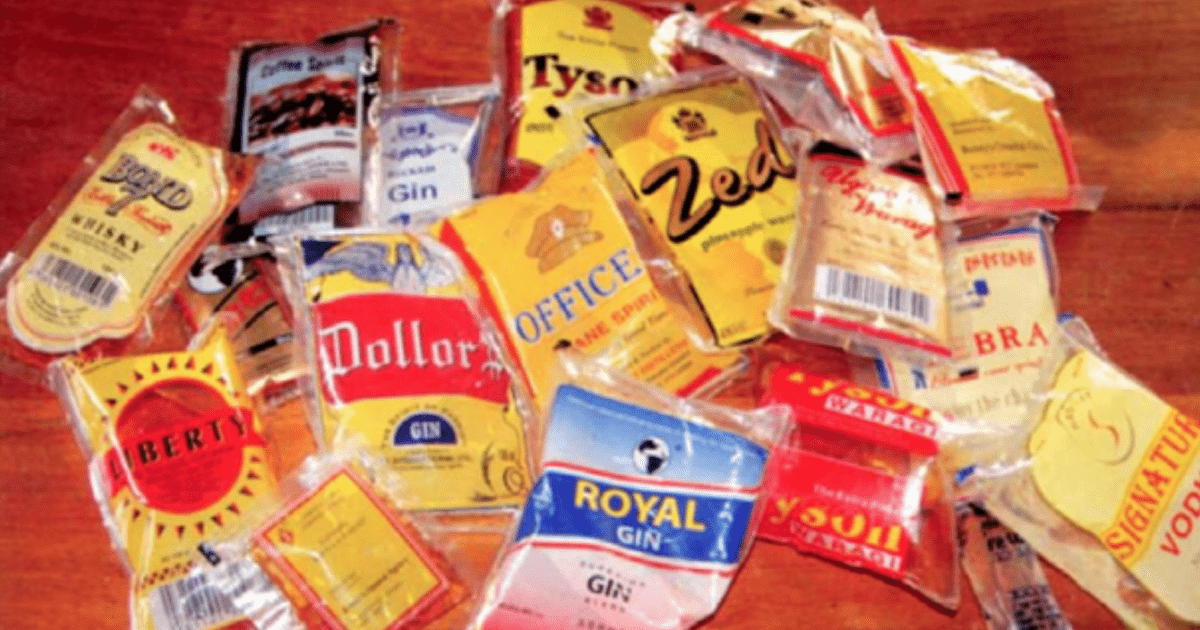The ongoing prohibition of alcoholic beverages in sachets and small glass bottles of 200ml and below by the National Agency for Food and Drug Administration and Control (NAFDAC) continues to elicit concern among distillers, sparking a series of protests since February 1. The most recent demonstration transpired at the NAFDAC office in Lagos, situated in the Isolo area of the state, where members of the Distillers and Blenders Association of Nigeria (DIBAN) voiced their grievances.
DIBAN representatives expressed their discontent through the display of placards bearing poignant messages such as ‘Allow Less Fortunate Nigerians to Survive’ and ‘Allow Beverage Workers to Thrive.’ Their protest underscores the profound apprehensions and discontent within the industry concerning NAFDAC’s imposed ban, particularly regarding the livelihoods of workers and the availability of cost-effective alcoholic beverages to consumers nationwide.
The prohibition, targeting unregistered alcoholic beverages distributed in sachets and diminutive glass bottles, has encountered opposition from stakeholders who contend that it disproportionately impacts low-income Nigerians and undermines the sustainability of small-scale distillers and blenders. NAFDAC’s decision to enforce the ban has ignited widespread discourse and raised inquiries about the regulatory agency’s approach to tackling public health issues linked to alcohol consumption.
While NAFDAC asserts that the ban is indispensable to safeguard public health and curb the proliferation of substandard and potentially hazardous alcoholic beverages, critics argue that it neglects to address the fundamental causes of alcohol-related challenges and imposes unwarranted burdens on legitimate businesses operating in the sector. The ban’s ramifications on job opportunities and economic endeavors within the beverage industry also raise concerns among stakeholders.
The protest staged by DIBAN members at the NAFDAC office underscores the imperative of devising a balanced and sustainable resolution to the predicaments posed by the prohibition of sachet and small-bottle alcoholic beverages. It underscores the necessity for enhanced dialogue and cooperation among regulatory bodies, industry stakeholders, and civil society entities to confront the underlying issues and formulate evidence-based policies conducive to public health and economic progress.
As discussions regarding the ban persist, it is paramount for all involved parties to engage in constructive dialogue and explore alternative strategies for regulating the production, distribution, and consumption of alcoholic beverages in Nigeria. Attaining consensus and striking a harmonious equilibrium between public health considerations and economic imperatives is indispensable to ensure that regulatory interventions are efficacious, equitable, and responsive to the needs of all stakeholders.
Looking ahead, stakeholders must collaboratively endeavor to identify pragmatic solutions that address the concerns precipitated by the ban while upholding the tenets of public health and safety. This necessitates a comprehensive approach that encompasses the diverse interests and viewpoints of all stakeholders, encompassing consumers, producers, distributors, and regulatory authorities. By fostering dialogue and collaboration, stakeholders can contribute to the formulation of policies and regulations that promote responsible alcohol consumption and bolster the sustainable advancement of the beverage industry in Nigeria.




